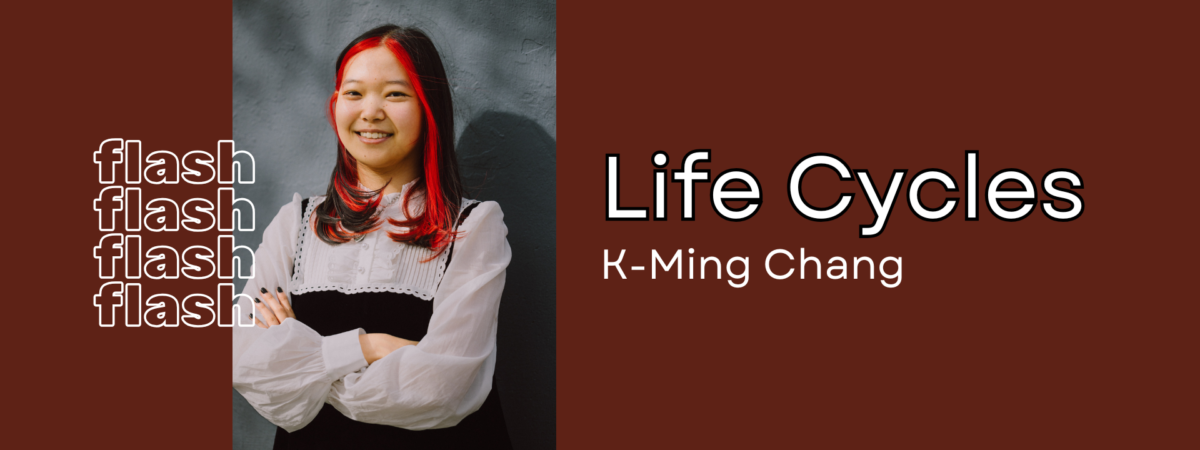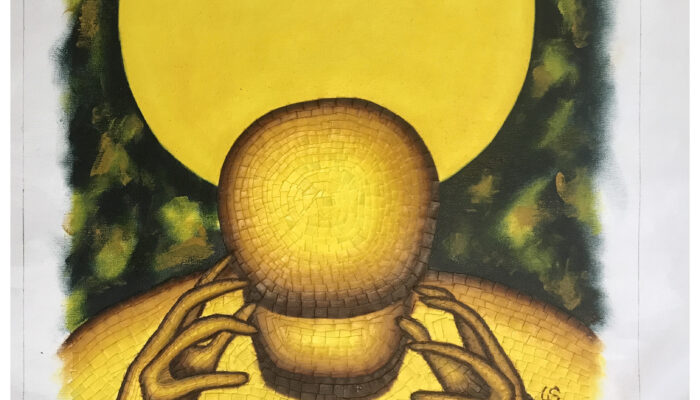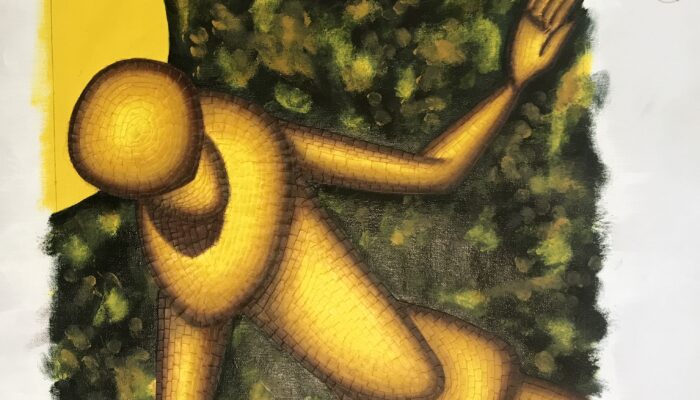With the paycheck from her new job, my mother buys a washing machine. She straps the box to the top of our car and escorts it home like royalty. But Ama refuses to use it, says the machine wastes water. In truth, she wants to keep going to the 24-hour laundromat on our street, the one with windows so big and clear, everything inside is whitened by the soap of sunlight. It’s where you go to be reborn. After slotting your quarters into the machine, you choose your cycle and crawl inside. There’s the delicate cycle, for souls that are easily torn and must be massaged into their new forms; the power wash cycle, for those whose sins are particularly stubborn stains; and the quick wash, which swallows all the rest of us.
My mother says we’re strapped to a cosmic wheel, and you can’t just press a start button and expect to escape suffering. But Ama takes me on Sundays, and we run through the aisles laughing, flinging open the doors to every machine, witnessing rebirth: a crow gushing out like ink, a doe climbing out on wobbly legs, an octopus blended into jelly.
Ama never launders her own life. Only our clothes go into the machine, never our bodies. It’s better to accept your little in life, she says. I correct her: You mean your lot in life.
One time, I yank open a door and a slug slithers out. Ama whispers to me that it’s Lai Ayi, who’s already on her 1,873rd life. She sold her house and her car and her kidneys just to fund her reincarnations. Now she lives in a metallic palace of coins, and every day she feeds a fistful to the machine and stuffs herself inside. So far, she’s crawled out as every species of reptile, a battered bride, and a giraffe thigh (the rest of the body got stuck inside). Still, she’s unsatisfied. Last week, when she was a golden-crowned sparrow—the closest that woman will ever get to royalty, Ama says—Lai Ayi fluttered to the laundromat with quarters in her beak, so eager to reincarnate that she slammed into the window and had to be revived by pedestrians. Ama shakes her head and says some women are so terrified of repeating the same life, they’ll run to anything else.
Our family is the same way: my mother says she’ll kill herself before she ages into a burden like Ama, and Ama says she’ll get old and wise instead of jumping off a building like her young mother did. Both of them worry I will copy their crimes, adding to the debts we’ve accrued in our past lives. The cousin kidnapped by her husband, the country that flooded, the aunt with the bean in her breast—every tragedy is currency, a down payment on our bodies, and the job of a daughter is to be the one responsible.
I ask my mother if I can get out of this job, and she says to stop going to the laundromat: it’s a gutter of guilt. But at night, when I see her kneeling in front of the shrine, I know she believes we’ve committed horrors before we were born. Because we’ll never pay back our days, we have no exit. Instead of emerging into air, we paddle in the opposite direction, burying ourselves deeper inside our mothers. We grow into them like clothes, wearing all we owe. I imagine my mother inside a washing machine, trapped behind glass, churned in circles until her face erases itself like a stain.
The next morning, I find out why she’s been praying: in the kitchen, she tells Ama that she got fired. She’s going to have to return the washing machine, and we better pray it’s not too late.
It’s always too late, Ama says.
That day, I walk to the laundromat alone. In the doorway is a little bird with blue-gray wings, a coin in its beak like a newly minted moon. Its wings whir, blurring into a bruise. It’s Lai Ayi, begging me to kill her now, to swat her down like a fly. She says: Nearly 2000 reincarnation cycles, and I end up a damn barn swallow!
What’s wrong with being a barn swallow? I ask.
Don’t you know? she says, barn swallows only have a five percent survival rate in the first year of their lives. Starvation and predators. Adulthood is improbable.
What I wanted, Lai Ayi says, is to be a protected species. One of those animals on a special list that says, ‘You cannot hunt, eat, or capture these. They are precious. They are few.’ But barn swallows are everywhere, ordinary. At dusk, when I was a human, they swarmed the tree in my backyard, dicing the air as nimbly as knives, chasing tiny insects only they could see. And though they were graceful, all I saw were their ghosts, the 95 percent who hadn’t survived, the ones who should have been. The inheritors of our air. Every tree earning a crown of their bodies.
I hold out my empty hands, and Lai Ayi flits into my palms. I cup her to my chest and walk up to a machine. When the door swings open, I climb in. Lai Ayi’s wings beat against my breast, and as the drum floods with water, I feel her heart slowing, syncing with mine. We shut our eyes. We feel the water rise and rasp in our throat. Outside, I hear Ama’s voice calling to us, her hands outstretched to receive our body clean.
Lai Ayi’s soul makes a nest in my chest, and the cyclone of water swallows us together. We batter the glass until it cracks. I expand, my arms branching out like a tree’s, puncturing the walls of the drum, lancing it with leaks. Soon the water will lash out of the holes, emptying the machine. In the depths of my chest, Lai Ayi repeats: Soon, soon. This cycle is ending.




